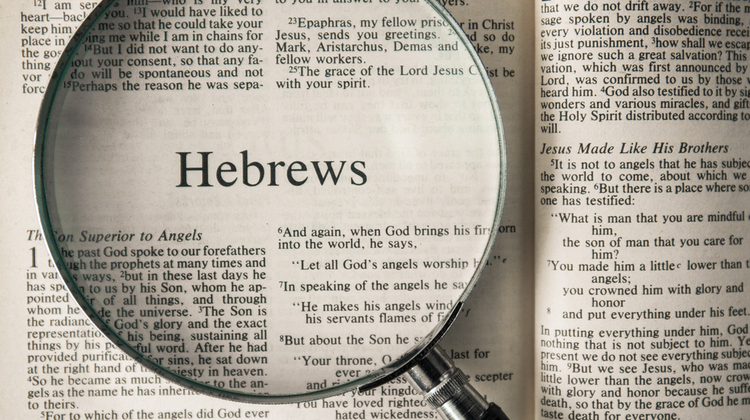This week Fr. Gabriel will lead us through Hebrews 7-8. Within the passage, the writer continues his argument of Jesus as a new Great High Priest in the order of Melchizedek. A new covenant (or testament as the KJV says) requires a new priesthood, which is now provided. And it is the nature of this new covenant that was foretold in Jeremiah 31:31-34.
According to the writer, the role of the high priest is “to offer gifts and sacrifices; hence it is necessary for this priest also to have something to offer.” Heb. 8:3. It is here, that the writer begins to hint at the great mystery of the incarnation. For in Christ Jesus, we see that the high priest and his offering are the same. In his work, Why God Became Man, Anselm of Canterbury (Archbishop of Canterbury from 1093-1109) explores this very idea. There Anselm asks the question of how an atonement can be effected, “unless He is paid the price for man’s sin—a price greater than the whole universe apart from God. . . . But anyone who could give God something of his own that was more valuable than the whole universe would have to be greater than anyone or anything but God.” Bk II, ch. 6. In other words, the only sacrifice truly worthy to be made to God, is God himself. However, since it is we that sinned and caused the rupture with God, it can only be one of us that makes the sacrifice. The solution is the Incarnation where the person making the sacrifice and the divine which is sacrificed are identical. “So, if the heavenly kingdom must be filled with men, and if this cannot happen unless the satisfaction is made for sin — satisfaction which no one can make but God, and no one ought to make but man — then it is necessary for the God-man to make it.” Anslem can be difficult to read, but if you have the inclination I would commit this work to you, or at least the first of part of Book II.
Dinner is at 6. The menu is chicken parmigiana. Lesson about 6:45. Hope to see you here.
You know that you were ransomed from the futile ways inherited from your fathers, not with perishable things such as silver or gold, but with the precious blood of Christ, like that of a lamb without blemish or spot.
1 Peter 1:18-19.

